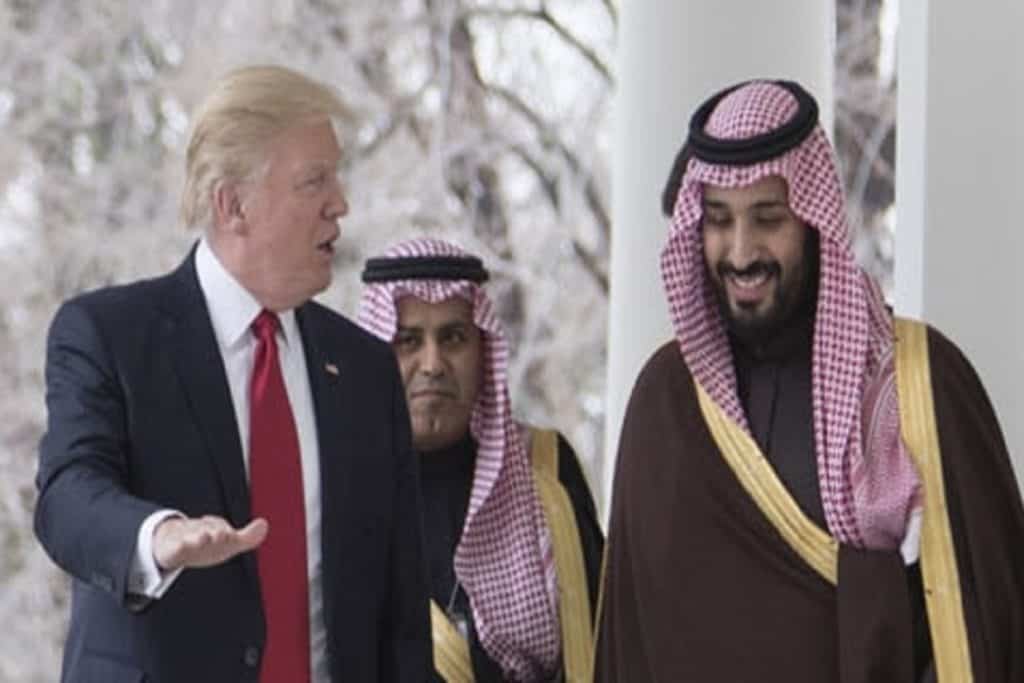By Denis Korkodinov
Israeli Prime Minister Benjamin Netanyahu back in February 2019 in the “Twitter” published a message about an impending military operation against Iran. Subsequently, this message was removed from public access, but its meaning continues to be implemented up to the present.
In addition, Riyadh recently called on the United States to deliver a pinpoint attack on Iran in response to an UAV attack on Saudi oil pipeline facilities. In conjunction with the Israeli message, such an anti-Iranian campaign creates the impression of a long-awaited plan, where Washington is prepared to play the role of a “wishful executor.”
Relations between Tehran and Washington can hardly be called strictly regulated now. Both states constantly oscillate between states of war and peace. The pressure exerted on Iran by the White House administration puts the world on the brink of nuclear uncertainty, leaving the entire international community in an extremely vulnerable position amid a potential global conflict.
At the same time, each side of the opposition tries to take a series of steps towards escalation, which creates an even greater likelihood that sooner or later someone will be the first to lose their nerves, and an irreparable mistake will occur in the form of a war of total destruction.
In this case, the actions of Israel and Saudi Arabia are most likely subjective. For regional dominance, they have much more motivation to launch a military campaign against Iran than, for example, the United States. In other words, Washington will not receive any direct benefit from the conflict with Tehran, while Tel Aviv and Riyadh can get the main bonuses.
Keeping the nuclear deal unchanged would create an obstacle for Iran to develop its own nuclear weapons. At least, until 2030, the Ayatollah regime could not have declared its intention to enrich uranium and build nuclear facilities, if it were not for a certain set of circumstances that forced Tehran to do this already this year.
However, now the artificially heated aggression of Iran gives Israel the opportunity to deliver a preemptive strike against the targets of a potential enemy. The Saudis will not remain indifferent either, since the development of the Iranian nuclear program violates the resulting nuclear parity in the region and is a cause for international concern.
For Riyadh and Tel Aviv, the existing agreements between Tehran and Washington on limiting nuclear production were unprofitable. Moreover, they saw in the nuclear deal a signal for the later formation of the American-Iranian partnership, and therefore they were jealous of it. For this reason, the refusal of Donald Trump to participate in the transaction was perceived by the Saudis and Jews with delight. This allowed almost without fear of being monopolists in friendship with the United States in the Middle East.
Back in November 2018, Donald Trump publicly called Riyadh “an important ally in the fight against Iran.” It was a nod to the crown prince Mohammed bin Salman, who hoped to strengthen his position in the Arab world through the United States. And the gain of Iran did not fit into the specified scheme at all. Therefore, it was necessary to weaken Iran as much as possible.
But how to do this when the ayatollah regime, it would seem, absolutely did not give rise to pressure on him? To do this, it was necessary to provide him with the opportunity to first feel his strength by giving up nuclear deterrence, in order to blame him for that later. This is an excellent reason to neutralize the enemy: first give him a weapon, and then accuse him of having this weapon.
Currently, Iran poses no threat to Washington. At the same time, Israel and Saudi Arabia have good reasons to fear the nuclear program being developed by Tehran. In this regard, it is not surprising that these countries were trying to convince Donald Trump of the Iranian threat.
Moreover, the Saudis and Israelis are well aware of the fact that in the case of a direct military confrontation with Iranian forces, they have very little chance of winning. So, Riyadh and Tel Aviv are very vulnerable to Iranian ballistic missiles. In addition, Israel does not intend to get involved in a war with the pro-Iranian Hezbollah group. Therefore, these countries are betting on the United States, trying to weaken Tehran with their hands. But does Donald Trump need to perform other people’s moods?
(The opinions expressed in this article are solely those of the author and do not necessarily reflect the views of World Geostrategic Insights).







